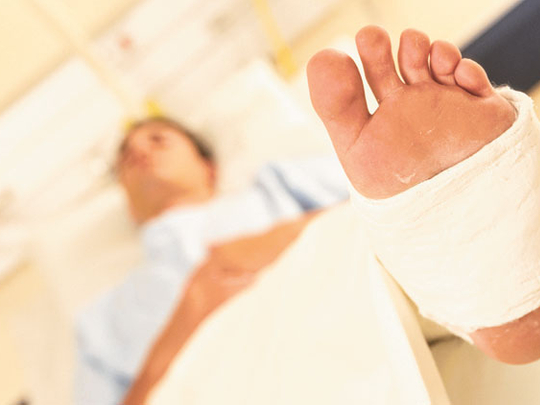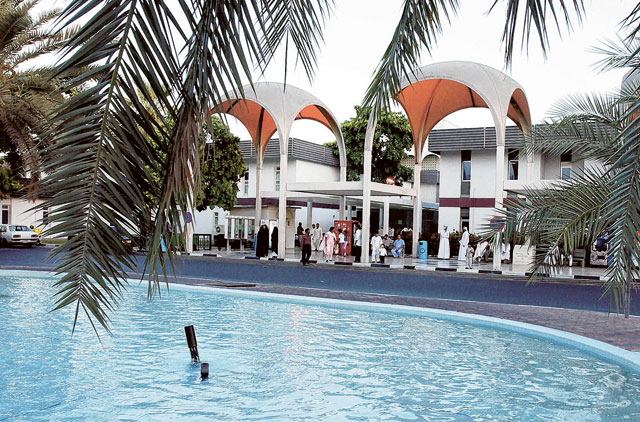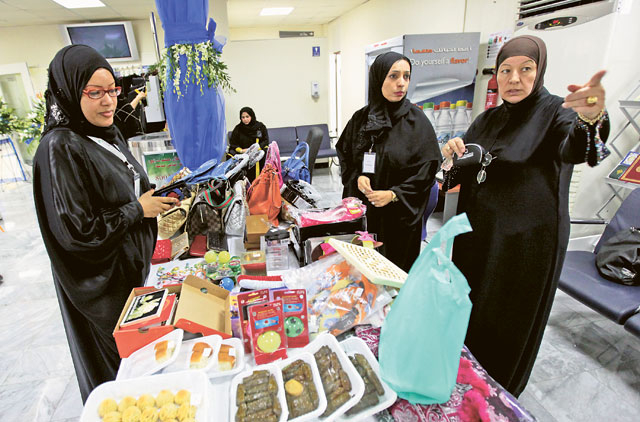
Dubai: Public health care costs are spiralling out of control in Dubai causing huge concern among expatriates.
Treatment costs at government hospitals and clinics in the city have spiked sharply even as health cards yield little and mandatory health insurance remains elusive to many residents.
Almost on a par with private hospitals, government hospitals are charging between Dh250 and Dh400 for a consultation, with a bed in the Intensive Care Unit going up to Dh3,100 per day.
If this was not worrying enough, the Dubai Health Authority (DHA) has decided to charge expatriate cancer patients for chemotherapy sessions from next week. (See Page 8 to see how the decision has impacted the lives of cancer patients in Dubai)
"From May 3, patients will have to pay for their chemotherapy injections, the cost of which will depend on the medication," a source at the Oncology Department of Dubai Hospital told XPRESS.
Leonilo Neil de Jesus, a Filipino whose wife Raymunda is undergoing her 35th chemotherapy session for colon and liver cancer at the hospital is shattered. "I don't know how we will manage. Each session will mean Dh8,000 more," he lamented.
Not far away at Al Wasl Hospital, B. Joseph and his wife, who had their first baby in Dubai in 2000, said, "We paid just Dh100 for the delivery then." Today, 11 years later, as they prepare for their second baby's arrival at the same hospital, the delivery package will cost them Dh12,000 - or Dh15,000 if it's a C-section.
"The health card is of no use now," said Joseph.
A DHA staff answering toll free number 800342 confirmed Joseph's observation. "The card has no specific benefits. It only gives you access to government hospitals and clinics," he said.
As things stand, emergency treatment for critically injured or ill patients is free at government hospitals till the time their condition stabilises. However, they are billed once they are shifted to other wards for treatment.
And this is where it pinches.
The matter recently came into sharp focus when an Arab woman, treated for stab injuries sustained during a robbery, lodged a complaint when she was billed Dh285,000 by Rashid Hospital.
Her complaint prompted Dubai Police Chief Lieutenant General Dahi Khalfan Tamim to hit out against the practice of charging crime and traffic accident victims. The Arabic press quoted him as saying such victims should be treated free of cost at the government's expense.
DHA RESPONSE
But the DHA has its compulsions. In an e-mail statement to XPRESS, a DHA spokesman said, "As a vital service provider, we take into account ethical and moral requirements. We are always aware that the field involves the life and death of patients and keep in mind the oath all doctors have taken - to treat all patients no matter what race, religion or social standing - leading to the fact that all patients coming to hospitals, especially emergency cases, need to be treated immediately regardless of their capability of paying or not."
"However, taking into account the rapid increase in the population of Dubai and the spiralling costs in running health organisations, there should be a mechanism in place to at least cover the costs of such services."
"We believe that most of the issues, if not all, will be resolved with the introduction of a universal mandatory health insurance scheme, whereby every resident of Dubai is covered for certain health services. Dubai is moving forward in that direction," the spokesman added.
The scheme, that was to be introduced in January 2009, has however, been delayed.
According to a Dubai Household Health Survey conducted by DHA, 75 per cent of workers (labourers) in Dubai currently have no health insurance, the implications of which are resulting in a vicious cycle.
"Limited access reduces utilisation; this does not provide enough volume to maintain a high quality of the services provided, allow specialised centres of excellence nor promote medical tourism," noted Dr Haider Al Yousuf, Director, Health Funding, DHA.
Serious questions about who should foot the escalating bills at government hospitals are also eliciting few answers.
Ram Lachhan Raj, 37, a laundry worker in Al Ghusais, was diagnosed with leukaemia and renal failure last December. He ran up a bill of Dh44,000 in just one week, which neither he nor his small-time employer could afford.
"As good residents, we would like to pay, but just cannot afford it," said Somsun. S, owner of a small electrical company, hard-pressed to come up with Dh45,000 for the treatment of an employee who was rushed to Rashid Hospital after a fall which left him paralysed.
Another accident (road) victim, admitted to Rashid Hospital with a brain injury last May, is still waiting to be repatriated as his dues - around Dh60,000 - are yet to be settled. Reason: a dispute over the liability between the old and new managements of the company which has changed hands since the mishap.
"The hospitals are generous and waive the fees in many cases. But for how long? Even NGOs and others who were pitching in earlier are backing off as the amounts are too high," said one NGO member who did not want to be named.
Of late things have come to such a pass that Rashid Hospital has started organising charity bazaars and garage sales (see box right) to raise funds for patients who are unable to foot hospital bills
"It is imperative that mandatory insurance comes about quickly," said Vinod Verma, Legal Consultant at Al Hosani Advocates & Legal Consultants.
"But it is not easy," said Albert Rodrigues, Managing Director of Millennium Insurance Brokers. "The challenge for the health authorities is to find the right formula that would satisfy all the stakeholders - medical providers, employers, insurance companies and the general public who include both Emiratis and expatriates."
"Most employers do not have the margins to cater to the new requirement," he said.
The global economic slowdown hasn't helped matters either. Sanjay Tolani, Director, Goodwill Insurance Brokers, said, "After the financial crisis, some multinationals have sized down employee covers, while others have begun to share premium costs with the employees."
He said even otherwise, some of the largest employers have preferred to go in for cheaper options like HMOs (health management offices) where employees can avail discounts at certain clinics or doctors.
Also to be factored is the haggling between employers and insurance companies for a better deal. "This is a market scenario and has nothing to do with the delay," said Rodrigues. "As buyers, employers will always want a cheaper plan and insurance companies will always push for a higher premium."
But the longer it takes to find common ground to make mandatory insurance a reality, the more burdensome it will be for the various stakeholders.
Bizarre bazaar at Rashid Hospital
Dubai: Garage sales and charity bazaars are all too common in a city like Dubai. But from April 11 to 15, they took on a new meaning when the main reception of Rashid Hospital was transformed into a bustling market as it were.
From trendy blouses, T-shirts and handbags to curios, trinkets and toys - stalls stacked with colourful wares drew a steady stream of visitors and staff members.
An initiative of the Ladies Committee of the Social Services Unit of Rashid Hospital, the bazaar was aimed at raising funds for the treatment of needy patients.
"Many of the patients who come here cannot afford to pay for their treatment," said Mona Almas, Chairperson of the committee and Head of the Social Services Unit.
"We plan to hold the bazaar every three months," she said, noting that most of the stalls in the current round were set up by families of staff members. "We will soon open it to others as well."
"I came here with my husband for a blood test. Now I am leaving with a pretty purse that I bought at the bazaar," said a visitor, Annapurna Shamanna.
Another visitor who picked up a curio for Dh70 said, "I thought it was a bit steep, but I don't mind as it is for charity."
UAE figures
According to the World Health Organisation, the expenditure on health per capita in the UAE is $982 (Dh3,607). This may be far less than that in most Western countries, but the rising cost of providing medical care in a tax-free regime are proving burdensome. The budget of the Dubai Health Authority (DHA) alone has seen an annual increase of 20.3 per cent in five years.













